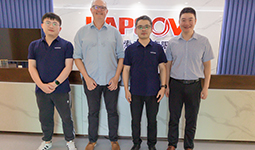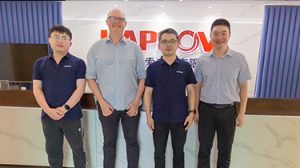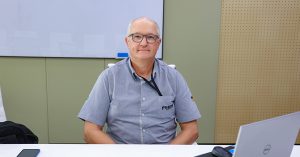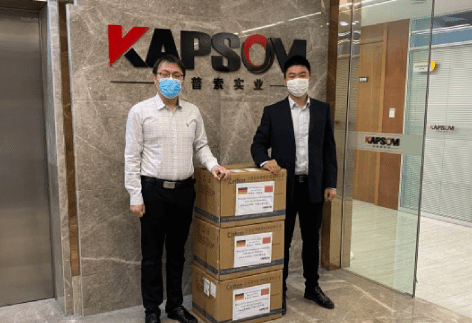Discussing green ammonia and green urea project between Phama and KAPSOM
From August 7th to August 9th, 2023, Mr. Luiz, Chairman of Brazil’s Phama Company, paid a visit to KAPSOM . During the three-day visit, technical exchanges and business discussions were held concerning the Green Ammonia and Green Urea projects. Mr. Chen Qingxiao, KAPSOM’s South American Market Manager, provided full reception throughout the visit.
Brazil: Prominent Natural Advantages, Green Energy Gearing Up for Development
From a natural perspective, Brazil possesses significant advantages. Approximately 80% of its land is situated within tropical regions, with over 50% of the terrain lying above 500 meters sea level. The annual sunshine duration exceeds 3,000 hours on average. Brazil experiences a total solar radiation ranging from 1534 to 2264 kWh/㎡, with an average of approximately 1700 kWh/㎡. The national average daily light intensity reaches 4.5 to 6.3 kWh/㎡. The potential installed capacity for solar power generation surpasses 114 million kW, representing substantial developmental potential.
Furthermore, Brazil ranks among the world’s most endowed nations in terms of wind power resources, spanning diverse wind zones and hosting wind energy parks across its landscape. The country boasts a well-established and specialized wind supply chain, ensuring the delivery of top-quality components. Consequently, Brazil’s wind power generation achieves optimal global capacity factors. Preliminary assessments indicate the potential for an installed wind power generation capacity of up to 143 million kilowatts.
In addition to wind and solar resources, Brazil stands as a prominent global player in hydropower. Hydropower contributes around 60% of the nation’s total electricity generation, holding a predominant position within Brazil’s energy mix.
Collectively, Brazil’s renewable energy generation constitutes over 80% of its total electricity output.
Phama: Pioneering in Brazil’s Green Energy Projects
Phama is a leading photovoltaic energy company in Brazil. Its Green Hydrogen Center project has been selected as part of the inaugural Brazil Green Hydrogen Innovation Program, implemented by the Brazil-Germany Green Hydrogen Expansion Alliance with support from Germany’s international cooperation agency and the Ministry of Mining and Energy. Located in a municipality in the state of Rio Grande do Sul, the project focuses on small-scale agricultural production. Utilizing elevated photovoltaic panels, it ensures the simultaneous construction of a solar farm and agricultural cultivation, including crops like tobacco, medicinal plants, corn, and wheat. The project also utilizes locally produced green ammonia as fertilizer for plantations and local households. It is scheduled to commence operation in 2024.
Meanwhile, Brazil’s ethanol industry is rapidly growing, but ethanol production processes result in substantial carbon emissions. Research from Brazil’s agricultural research company, Embrapa, reveals that approximately 260 kilograms of carbon dioxide are emitted per thousand liters of sugarcane ethanol. By capturing this high-concentration carbon dioxide through CCUS (Carbon Capture, Utilization, and Storage) technology and combining it with green ammonia, the production of environmentally beneficial and economically valuable green urea becomes possible. This represents the next phase of Phama’s green energy project.
Empowering Sustainable Agricultural Development in Brazil
In its role as a major agricultural exporter, Brazil deeply understands the pivotal role agriculture plays in promoting economic growth, social integration, and positive environmental outcomes. However, Brazil’s agricultural production is heavily reliant on imported fertilizers. As one of the world’s largest fertilizer importers, Brazil depends on imports for approximately 85% of its fertilizer needs. At the same time, exemplary companies like Phama are acutely aware of the impact and risks of climate change on global food security.
Diverging from traditional large-scale synthetic ammonia facilities, KAPSOM’s decentralized small-scale green ammonia setup aligns with Brazil’s local agricultural applications and effectively integrates with upstream sources of renewable energy, such as solar and hydroelectric power. KAPSOM is keen to collaborate with outstanding enterprises like Phama, leveraging Brazil’s abundant natural resources to transform green energy sources like wind, hydropower, and solar energy into environmentally friendly fertilizers that cater to local agricultural development. This collaborative effort not only ensures local fertilizer resource independence but also fosters a sustainable socio-economic future while safeguarding environmental wealth for future generations.









